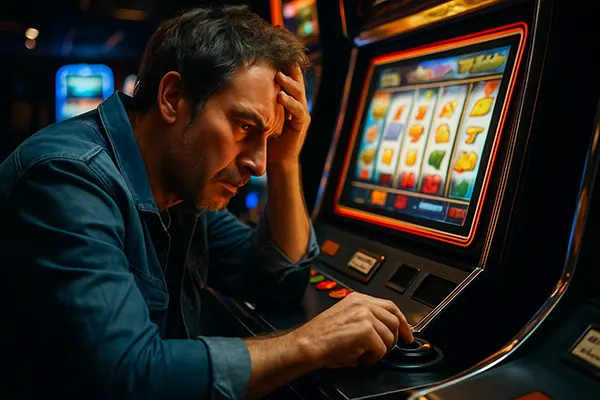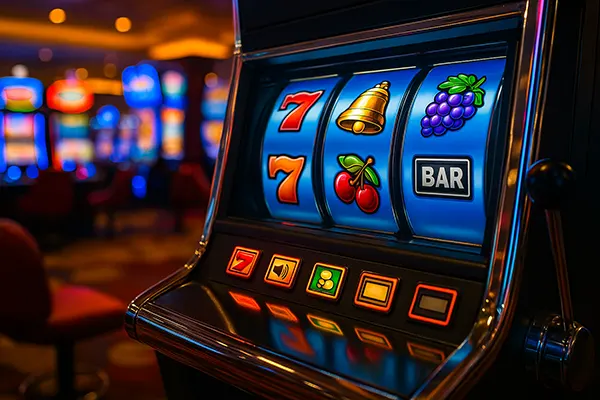Psychology of the Gambler: Why Do We Keep Playing Even After Losing?

The compulsion to keep gambling, even in the face of continuous losses, is a well-documented phenomenon that intertwines psychology, behavioural patterns, and neurological responses. For many, gambling is not simply a pursuit of profit, but a deep-seated habit tied to emotional states and cognitive biases. Understanding this phenomenon is essential for grasping why so many individuals remain engaged in betting activities, despite repeated setbacks.
The Role of Dopamine and Reward Systems
One of the most significant psychological mechanisms involved in gambling behaviour is the brain’s reward system. Specifically, the release of dopamine—a neurotransmitter responsible for feelings of pleasure—occurs not only when we win but also during the anticipation of a possible win. This creates a feedback loop that encourages repeated gambling, even if actual wins are infrequent.
What’s particularly important is that intermittent rewards—those received on an unpredictable schedule—are the most potent at reinforcing behaviour. Slot machines, for example, are designed using this principle. Players become conditioned to expect that a reward might be just around the corner, which maintains their engagement regardless of mounting losses.
Studies have shown that even near-misses—outcomes that are close to a win—can activate the same brain regions as actual wins. This fuels the illusion of control and keeps the gambler believing that success is imminent, making it more difficult to stop playing.
Cognitive Distortions and Risk Perception
Gambling is riddled with cognitive biases that distort a player’s perception of reality. One prominent example is the “gambler’s fallacy”—the belief that past events can influence future outcomes in games of chance. A common thought is that if red has come up five times in roulette, black is now “due.” In truth, each spin is independent, but players often fail to recognise this.
Another distortion is the illusion of control, where players overestimate their ability to influence outcomes. This is especially true in games that involve some skill elements, such as poker or sports betting. Such beliefs give gamblers a false sense of mastery and contribute to the continuation of play even when losing streaks persist.
Moreover, confirmation bias plays a role. Gamblers tend to remember their wins vividly and forget or minimise their losses. This selective memory creates a distorted view of one’s success rate, fostering continued engagement with gambling activities under the false belief that one is winning overall.
Emotional Triggers and Coping Mechanisms
Emotional factors significantly contribute to persistent gambling. For many individuals, gambling serves as a coping mechanism to escape stress, anxiety, or even depression. The immersive nature of the activity offers temporary relief from personal problems, creating a psychological dependency that goes beyond financial motivations.
Losses themselves can provoke emotional responses that compel further gambling. The desire to “chase losses”—an attempt to recoup money lost by placing additional bets—is a hallmark of problematic gambling behaviour. Rather than accepting a loss, players convince themselves that a win is inevitable, leading to a vicious cycle of increased wagers and deeper losses.
Social factors also play a role. Gambling venues and platforms often promote a sense of community or belonging. Players may feel part of a larger group or experience validation from peers. This social reinforcement can discourage individuals from acknowledging a problem and walking away from the activity.
The Trap of Sunk Cost Fallacy
The sunk cost fallacy is another psychological trap that keeps people gambling. When players have invested significant time or money into gambling, they feel compelled to continue in hopes that their investment will eventually pay off. Walking away feels like admitting defeat and losing all the effort already put in.
This mindset is particularly dangerous because it defies rational decision-making. Rather than evaluating each new bet independently, gamblers view the situation cumulatively, believing they must “finish what they started.” This leads to longer sessions and higher risks, especially when financial pressure increases.
Operators of gambling platforms often exploit this behaviour by providing personalised bonuses or “second chances” that tempt users to stay engaged. These strategies reinforce the illusion that the next bet could be the one that turns everything around, making it harder for individuals to break free from the cycle.

The Impact of Gamification and Technology
Modern gambling environments have adopted gamification elements to enhance user retention and engagement. These include reward tiers, progress bars, virtual achievements, and other game-like features that trigger satisfaction mechanisms. Even in loss scenarios, players may feel a sense of accomplishment by unlocking new levels or receiving loyalty points.
Mobile apps and online platforms have made gambling more accessible than ever before. Push notifications, in-app rewards, and quick deposit options encourage impulsive behaviour. The constant availability of betting opportunities increases the risk of habitual gambling, especially among users with limited self-regulation mechanisms.
Moreover, algorithms used by online casinos are capable of tracking user behaviour and tailoring experiences to maximise engagement. Players who tend to chase losses may be targeted with specific promotions or bonuses, increasing the risk of problematic gambling. While marketed as personalisation, these tactics can contribute to compulsive patterns.
The Difficulty of Stopping and the Need for Support
Once a person becomes psychologically attached to gambling, quitting becomes extremely difficult. The behaviour is often reinforced through various emotional and neurological rewards, creating a dependency similar to substance addiction. The anticipation of a win, the temporary relief from personal issues, and the illusion of control all serve as psychological barriers to quitting.
Recognising the problem is often the first hurdle. Many individuals do not realise how much time or money they have invested until it becomes unmanageable. Stigma and shame surrounding gambling problems also deter people from seeking help, prolonging the cycle of harm.
Support systems such as counselling, helplines, and responsible gambling tools are essential. Self-exclusion schemes, deposit limits, and reality checks can help mitigate compulsive behaviour. Public awareness campaigns and responsible gaming policies from operators are also vital in fostering a safer gambling environment.




